Covid-19 and corticosteroid injections
Since the outbreak of COVID-19 pandemic, we are making patients aware of the specific implications to be considered in relation to corticosteroid injections and COVID-19. The aim of this patient information page is to highlight the main factors that patients need to consider and to link to relevant resources for further information.
We recommend patients to consider their own unique circumstances along with any additional risks factors they might have in relation to COVID-19 when deciding upon steroid injection treatment.
There are 2 main issues patients should be aware of :
- Steroid injections may reduce a persons immunity for 2-4 weeks following injection. The reduction in immunity for most people is likely to be small and it is unclear if this has any impact on their risk of contracting COVID-19 (Regan et al 2021)
- Steroid injection given within 2 weeks before and 2 weeks after COVID-19 vaccine might reduce the effectiveness of the vaccination (Arthritis and Musculoskeletal Alliance)
What are the guidelines for steroid injections during COVID-19
NHS England have published on 16th June 2020 (updated from previous version from 25th March 2020) a specific guidance relating to the treatment of patients using corticosteroid injections to support clinicians and patients in the clinical decision making. Although the emerging data now suggests that the risks are probably very low (Regan et al 2021) for the majority of patients (McKean, D. et al September 2020) we continue to advise all patients to consider this risk before making an informed decision.
Regarding the COVID-19 vaccine, guidelines have been published by Arthritis and Musculoskeletal Alliance which recommend a 2 week delay following COVID-19 vaccine before steroid injection to avoid any possible diminishing of the vaccine response. Complete Injections are also following protocol currently adopted by a number of leading hospitals and organisations to recommend also a 2 week gap between steroid injection prior to vaccination wherever possible.
Corticosteroids and immuno-suppressant effect
Corticosteroids are an immuno-suppressant (they inhibit our immune system) which is one of the main ways in which they work and are clinically useful – they are powerful anti-inflammatory medication (they reduce inflammation and swelling) and therefore pain. However this means corticosteroids will also have a inhibitory impact on our general immune system and our ability to fight infections.
The immuno-suppressant effect to believed to last up to several weeks after the injection although this is believed to vary from person to person (Hackett et al 2020). Although there is a lack of clear evidence to act as guidance on this matter in terms of the exact size of increase in risk there might be.
It is important that any patients considering a corticosteroid injection are aware of the fact that corticosteroids could theoretically i) increase the likelihood of contracting COVID-19 due to its immuno-suppressant effect ii) inhibit their body’s ability to fight the COVID-19 virus if contracted and iii) could potentially make the patients more contagious to people around them, following a corticosteroid injection. One study published in 2018 showed patients who had received a corticosteroid injection were more likely to develop seasonal flu.
Because the size of risk is unknown it is recommended that patients and clinicians should reach a shared decision (Morgan and Dattani 2020) on a case by case basis weighing up the risks and benefits of proceeding with steroid injection treatment (Amani et al 2020)
For these reasons we are screening all patients with regards to following criteria:
- Do you currently have symptoms of COVID-19 or have you recently been in contact with a person with symptoms
- Have you or a person you cohabit with been advised to self-isolate or quarantine
- Are you in a high risk group for COVID-19 and / or do you live with a person in a high risk group (patients over the age of 70, BMI>40, BAME, diabetes, ischaemic heart disease, chronic respiratory disease or hypertension)
- Patients should where possible be referred or directly recommended for corticosteroid injection by their GP
- Patients must confirm that they are aware of and have considered the additional COVID-19 risks in relation to the immuno-suppressant effect of corticosteroids
- Patients must confirm that alternative treatments have been discussed and / or trialled
- Patients must confirm that the risks and benefits of receiving a corticosteroid injection have been discussed with GP or other health care professional
- Provide reasons to support that it would have significant detrimental impact on patients health (or health of person they care for) if corticosteroid injection were refused or delayed
We are providing a telephone screening for any patients wishing to consider corticosteroid injections. We consider against the following recommended criteria:
- Patient has high levels of pain and disability
- Patient has failed first-line treatment measures (e.g. analgesia, rest, splints, activity modification or exercise) and continuation of pain symptoms will have a significant negative effect on their health and wellbeing.
- Patient is willing to integrate corticosteroid injection treatment with holistic rehabilitation e.g. activity modification and exercise therapy.
- Would an alternative injection treatment be appropriate e.g hyaluronic acid injection or Platelet rich plasma (PRP)
Additional considerations for patients booking appointments during COVID-19 pandemic
- Patients should consider the mechanisms and risks of transmission and exposure of COVID-19 and that physiotherapy and injection treatments require close patient contact during the consultation and the procedure
- The clinician will be wearing full PPE including goggles, apron, mask and gloves. Patients are requested to wear mask (and gloves depending upon the procedure) which we are able to issue on arrival
- Government guidance and infection prevention and control measures are observed at all times.
We also request all patients to consider and plan their travel arrangements to and from our clinic with respect to government guidelines and social distancing. It is important that any patient considering a corticosteroid injection has weighed up the potential risks and benefits of receiving the injection and feel that delaying corticosteroid injection would have a derogatory effect on their health or the health of a person that they are a carer for.
Whilst acknowledging the potential risks of corticosteroid injections in relation to COVID-19 we are also aware of the extreme difficulties many patients are facing in relation to musculoskeletal pain and impact this has on their function as well as their physical and mental well-being during these challenging times.
We are taking the following steps to minimise risks to our patients:
- Additional screening including email and on-line screening (direct telephone call to patients where appropriate) prior to any bookings
- For patient safety reasons, we are currently unable to offer corticosteroid injections for patients who are categorised as ‘clinically extremely vulnerable’
- Screening of patients for symptoms of COVID-19 at time of booking and on arrival at clinic on day of appointment
- Created an additional COVID-19 specific section to our online consent form
- Additional time between each patient booking to clean room and equipment and facilitate social distancing in waiting area
- Increased level and frequency of cleaning for all our clinic sites. Our clinics are undergoing regular deep cleans to ensure we maintain highest levels of hygiene. Industry recommended virucidal disinfectant cleaning products are used to minimise the risk of contamination
- Use of personal protective equipment (PPE) in lines with Public Health England guidelines which includes visor/goggles, mask, gloves and apron.
- Selecting lowest dose of steroid that is clinically appropriate for the injection required
To speak to one of our clinicians please email injections@complete-physio.co.uk or call 02074823875 . We will be happy to discuss possibly treatment options with you
References



Leave A Comment